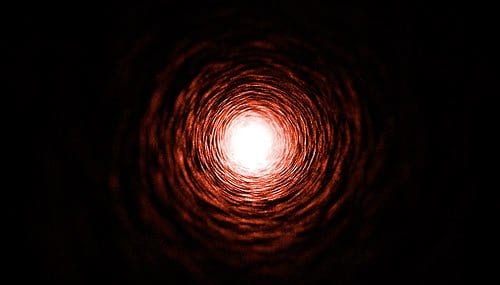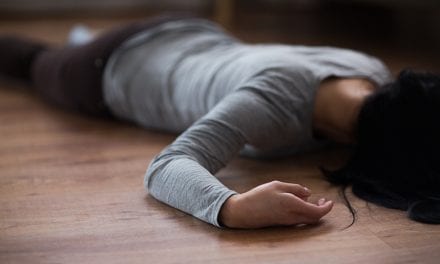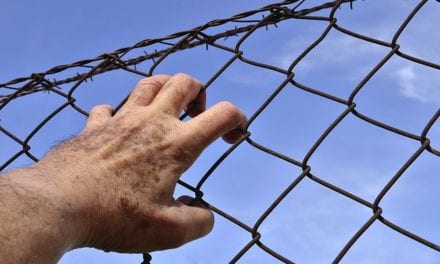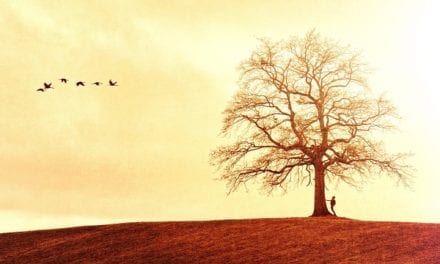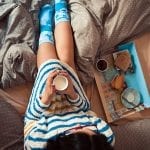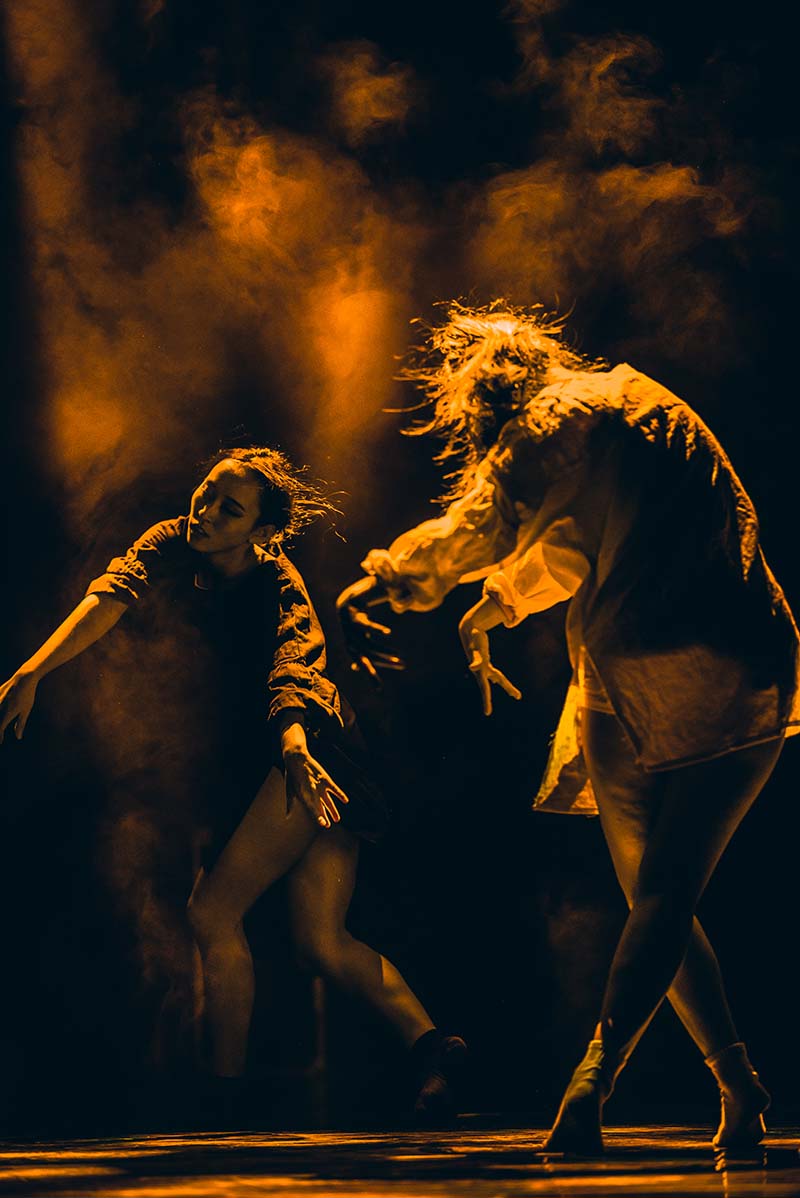Bobby Boyd’s Bad Eyes
“A pony that can play poker? Bullshit!”
“I swear, Jennie, I seen it with my own eyes. Bobby trained it to play. And the scary thing is, it’s good.”
I shook my head as I crumpled a greasy paper napkin and shoved it into a greasier paper bag. I belched, wrinkling my nose at the smell of the chili dog and onions I’d just eaten. “I’ve got to get back to work.”
My cousin Israel stood and followed me to the garbage can in the parking lot of Moo Chow’s. I always thought it sounded more like a Chinese restaurant than a burger stand, but that’s what it was—the only one in our little town.
He pushed in the plastic flap on the container so I could throw away the remains of our lunch. We had performed this ritual every Wednesday for the past two years, ever since I’d graduated from college and gotten a job at the library down the street.
I had been a good student, naturally smart, but impatient with puffed-up professors and clueless advisors. Turns out the advisors weren’t that clueless, but I didn’t realize it until I tried to find employment with a bachelor’s degree in medieval literature. Six months into a fruitless job search, one of the ladies at the library retired.
When I wasn’t surrounded by books, I partied with my cousin and our friends.
“You want, I’ll ask Bobby if you can sit in on one of our poker games. You know how to play, don’t you?”
“Ah, hell, you know I do, Izzy.”
My daddy didn’t teach me much before he took off for good, but he did show me how to play cards. Mostly because he knew it would piss off my mother. Mom’s church didn’t believe in cards. Or drinking. Or dancing. Or having fun of any kind. Probably why she didn’t care too much for me. I am my father’s daughter.
Izzy said, “Bye,” and went inside Moo Chow’s to finish his shift. I strolled down the sidewalk, pondering the idea of a poker-playing pony.
Saturday afternoon rolled around and my cousin called to invite me to poker night at Bobby Boyd’s place. A few hours later, I found myself in the passenger seat of Izzy’s jeep, trying to keep track of where we were going.
After we turned off the four-lane about ten minutes outside of town, we climbed up and down mountains full of curves. I thought I had been all over the back roads around home, but now I learned different. Bobby lived down a deep holler, just a narrow slit between two steep ridges. Hemlocks and pine trees crowded the sloping earth, casting long shadows across his solitary house.
“Bet this holler don’t see the sun much,” I said.
“No, and it’s a real bitch in winter.” Izzy shifted gears and guided the vehicle down the rutted road.
Once I bounced right off the seat and hit my head against the door. “Ow!”
“Sorry.” We pulled onto a mossy spot at the edge of the yard and Izzy cut the engine. I surveyed our surroundings as the car tick-tick-ticked in the cool air.
The house was nothing special. Probably built in the sixties—it was a little run down. Its white paint was peeling and it looked like it needed a new roof. The yard was clean, though, and rimmed by three small buildings in various states of decay. We got out of the jeep and walked through the grass to the front porch. That’s where I got my first look at Bobby Boyd.
He sat in a wooden swing, dead center, his arms stretched out across the back of it. The ragged hem of his faded jeans brushed the floor of the porch as his bare feet kept the swing in motion. He wore a black t-shirt with a picture of Johnny Cash flipping somebody the bird. He was listening to the conversation of two men perched on the porch steps, one corner of his mouth turned up at something one of them had said.
We stopped at the bottom of the steps. Izzy nodded at the men. “Cal. Dennis.” He cleared his throat and lifted his hand to the man in the swing. “Bobby, this is my cousin I told you about, Jennie.”
Bobby stopped swinging and turned his head to look at me. His hair just touched his shoulders. Picture a jar of homemade apple jelly sitting in a sunny window. That was the color of his hair. But his eyes were dark.
Gypsy eyes—bad boy eyes—I knew I wouldn’t be going home that night.
Bobby leaned forward and rested his arms on his knees. “You the girl wants to see my pony play?”
I nodded.
“Well, hellfire. Let’s get this game going.”
I had to apologize to Izzy for doubting him. Sure enough, that pony could play.
His name was Molasses, and that’s what color he was, although his mane was as black as Bobby’s eyes. He stood just outside the back of the house with his head poking through an open window. We sat at a round table pushed up against the wall. When it was Molasses’ turn to play, Bobby would hold the cards up to him and he would nuzzle one to throw down. Every so often Bobby would feed him an apple slice or a baby carrot from a bowl under the table.
Now, a poker-playing pony is an amazing sight, but one that wins the game? I have to say, it was a little humbling. I’d never been a great poker player anyway, so I took it all in stride. Cal, on the other hand, got really mad. He had laid out a full house, sure that he had the winning hand. When Bobby showed the table Molasses’ straight flush, Cal turned as pink as a cat’s tongue. He cussed and shoved his chips across the table. One bounced up and hit the pony on the muzzle.
Bobby came across the table at Cal. The man would have gotten a beating for sure if Izzy and Dennis hadn’t pulled Bobby off him. That kind of put a damper on the whole proceeding, so Dennis and Cal struck out for home. Izzy made out like he was leaving too, but I hung back.
“I’ll bring her home,” Bobby told him.
I could see Izzy wasn’t comfortable leaving me there, but I didn’t care. I grinned and waggled my fingers at him. Hit the road, Cuz!
I watched the jeep’s taillights disappear into the darkness. I stood on the porch listening to the crickets. The sound washed over me, followed by a tidal wave of despair. For a moment, I felt the urge to run up the long, rocky driveway shouting, “I changed my mind, Izzy!”
The moment passed, and I returned to the living room. It was empty now. I kicked off my sandals, feeling the need to muffle my footsteps. I heard glass clink in the next room and followed the noise.
Bobby stood at the kitchen counter pouring Jack Daniel’s into a shot glass. He tossed it back, then splashed some more into the glass. He held it out to me, a wicked form of communion I had taken many times, but never with such reverence as I had that night.
I crossed the room and pulled it from his hand. I turned the glass this way and that, staring at the amber liquid within. Usually I drank whiskey fast, but not this time. One slow swallow left a burning trail in my throat. I savored the fire, lifting my chin when I saw Bobby appraising me.
I looked around the room. It was messy. He had stacked dirty dishes in the sink. Empty beer bottles lined the backsplash. There was not a free spot to be found on the kitchen table; it held half-empty containers of pickle relish and ketchup, wrinkled potato chip bags, a crumbled pone of cornbread, and the remnants of a meal eaten hours ago. Bobby touched the nape of my neck and I shivered.
He pulled me close and ran his hands up inside my shirt, his calloused palms rasping my spine, filing me down to the core. I kissed him hard. A moment later we were groping each other, exploring new territories. Strangers in strange lands.
I stepped back and bumped the table. An open bag of cornmeal tipped over and dusted the vinyl floor. I curled my toes in the meal, surprised at how soft it felt. Bobby pulled me to the floor. We made love in a bone-white haze.
~~~OOO~~~
I woke up in the grey dawn and turned over in bed to stare at Bobby, who was snoring softly into his pillow. He looked different with his eyes closed, almost angelic. I would come to know better.
After rising from the bed, I grabbed a quilt from a nearby chair and wrapped myself in it. I walked through the house and stepped out onto the porch. Perching on the porch rail, I leaned my back against a post. I closed my eyes and heard two mourning doves call to each other. I hope they find each other, I thought.
After he got up, Bobby cleaned the mess in the kitchen, then fixed breakfast. Later I helped him feed Molasses, then we walked around the property. The best of the old buildings was a makeshift garage. It protected a Dodge Challenger, pitch black, like Bobby’s eyes at night.
The second building was piled to the ceiling with junk. Moldering boxes of Reader’s Digest magazines, rusty tools, and a broken hobby horse. I wrinkled my nose, then sneezed. “What are you doing with all this junk?”
“It ain’t mine. It was here when I moved in.”
“How long have you lived here?”
“Eight months.”
I found out later that he had been raised on the other end of the county, on the border of Kentucky. That explained why our paths had never crossed before the poker game.
As we approached the third building, he took my hand. “We don’t go in here.”
“Why?” The building was the smallest of the three, low to the ground, but it didn’t look like it was going to fall in anytime soon.
The door was held shut with a piece of wire. He unwound it and gave the door a shove. I saw a mound in the dim space, but couldn’t make out what it was.
“It’s an old cistern. The cover is broke. I guess whoever owned this place built this shed around it to keep people from falling in.”
I hugged myself. “Kinda creepy.”
“Yeah. I shined a light down there once. Couldn’t see the bottom. I don’t think there’s much water in it. Smells awful. Probably ain’t been used in fifty years.”
He closed the door and tied it shut with the wire. As we walked back to the house, I couldn’t keep from glancing over my shoulder at the cistern building. It made my skin crawl.
We spent the rest of the day in bed. I moved in with Bobby the next weekend.
~~~OOO~~~
The first three months were good. We both worked hard, me at the library and Bobby in his job as a coal truck mechanic. We played hard, too.
We christened every room in that house, and when the novelty wore off, we moved our lovemaking outside. I’m sure poor Molasses didn’t know what to think when he saw us. There was hardly a tree trunk or tuft of grass that we didn’t defile.
Of course, that biscuits-and-gravy kind of life didn’t last long. Bobby lost his job in October. One rainy afternoon, after dodging puddles and swirling leaves, I entered the house and found him brooding in the kitchen. A bottle of whiskey stood on the table.
“What’s wrong?”
“Laid off.” He swayed in his chair. “Not much coal moving out of Virginia, so they don’t need as many coal trucks. Or coal truck mechanics.”
I knelt on the floor and wrapped my arms around his waist. My head rested against his chest. I felt his hand heavy in my hair. “You’ll find something else.”
But he didn’t. A month passed, then another. There simply weren’t any jobs to be had. We talked about him opening up his own garage, but neither of us had money to start a business. I dreaded the day his unemployment benefits would dry up. He was moody—any discussion of money led to a fight.
We had argued before, but never like this. I wouldn’t say it out loud, to anybody, but his true temper scared me. His eyes were a mean kind of dark when he went into one of his rages. He’d scream at me, and throw things across the room.
After they repo’d his car, he broke half the dishes in the kitchen. He only stopped when a plate shattered against the refrigerator and a fragment hit me in the face. When he saw the rivulet of blood rolling down my cheek, he came to himself. He must have said he was sorry a hundred times that night.
“Sorry.” It turned into a vocal tic.
“I’m sorry I kicked in the television screen.”
“I’m sorry I threw your clothes in the yard.”
“I’m sorry I hit you.”
Yeah.
I think his apology was sincere the first time he did it. Truly. After I came out of the bathroom, eyes red and swollen from crying, I found him sitting on the top porch step. His head hung almost to his knees.
“I’m sorry, Jennie. I didn’t mean to hurt you. I love you.”
I dropped down on the step and peered at him. It was the first time he had ever said he loved me, although I had said it to him plenty. Without thinking, I popped soft kisses all over his face, as if my lips could erase his haggard expression of guilt.
But the more he said “I’m sorry,” the less it meant.
I stopped having Wednesday lunches with Israel because I didn’t want to face his questions. I avoided my friends, and withdrew from my coworkers at the library. I was ashamed that I had become that kind of woman.
You know the kind I mean. She “trips” on the stairs more than the average person. Has a lot of weird “accidents.” Runs into doorknobs with her face. Wears sunglasses and scarves, not because she’s stylish, but to hide the bruises.
But, finally, I found my last straw, the proverbial one that broke the camel’s back. Or, in this case, the pony’s back.
I came home one bleak February afternoon to the sound of Bobby screaming at someone behind our house. The fury in his voice was punctuated by an ellipsis of short, sharp thwacks. I ran around the corner of the house and found him beating Molasses with his belt. He was using the end with the metal buckle on it!
The trembling pony shook his head as if hornets were stinging him. He tried to back away from his master but Bobby had slung a nylon rope around his neck so he couldn’t escape. When he lifted his arm to hit the pitiful creature again, I screamed, “Stop it! What are you doing?”
“Sonuvabitch stepped on my foot! Like to near broke it!”
His belt made a terrible sound as it came down on the pony’s back. Whup! Whup!
I shoved Bobby away from Molasses and threw my arms around the animal’s neck. “You know he didn’t mean to do it! Don’t hurt him!”
“Move, Jennie! Or I swear I’ll beat you too!” His eyes were dark and flat.
“No,” I said in a voice hoarse with fear.
He raised his arm and the belt licked the air before the buckle landed on my face. Feeling the skin tear, I screamed and fell to the ground at the pony’s feet. I lifted my arms to protect my head from the next blow but it never came.
I heard the thunk of the buckle as the belt hit the ground. Bobby said in a dull voice, “I’m sorry.” He turned and walked into the house.
I lay on the ground a long time with my hands pressed to the gash in my face. When I felt the blood begin to freeze on my skin, I got up. I ran my hands down the pony’s back, weeping when he rolled his eyes at me, as if I might hurt him, too.
I led the pony to the empty garage. We had moved him there for the winter. After filling his water and food buckets, I rinsed the wounds on his back. We didn’t have any kind of medicine, so I wasn’t sure what else to do for him. I stroked his face, then walked back to the house. On the way there, I saw the belt, stiffening on the ground like a dead snake. I grabbed it and carried it inside.
Bobby sat in the living room staring at the broken television. He didn’t look at me as I walked past him into the kitchen. I grabbed a bottle of whiskey and took a sloppy swig before going to the bathroom to check the damage to my face.
It was bad. I should have gone to the emergency room and gotten myself stitched up, but I didn’t. I poured half a bottle of rubbing alcohol in it, biting my knuckles to keep from screaming at the pain. I laid a clean washcloth against it until the burn faded to a dull throb.
Returning to the kitchen, I drew a glass of water, then rummaged through the cabinet drawers. Bobby had hidden a bottle of prescription pain killers in one of them. He thought I didn’t know he was using, but I wasn’t stupid. When I found it, I popped off the cap and swallowed a pill with some water.
I shook the rest of the pills into my hand. Only four left, not enough to overdose. Glancing over my shoulder, I saw that Bobby hadn’t moved. I stepped farther into the kitchen where he couldn’t see me. Grabbing a can of green beans from a cabinet, I used it to crush the remaining pills.
I poured two fingers of whiskey into my water glass and set it on the table. After scraping the pill powder into my hand, I sprinkled it into the bottle, capped it, and shook it vigorously. Holding it up to the light, I examined it. It looked a little cloudy, but in the state he was in, he probably wouldn’t notice. I carried the bottle and my glass to the living room.
“Here,” I said as I handed him the bottle. “I think we both need a drink.”
He stared at my face as he took the Jack Daniel’s from me. I half expected him to say he was sorry. Instead, he lifted the bottle and took a long swallow. I sipped my whiskey and watched him over the edge of my glass. My heart skipped a beat when he grimaced, but all he did was wipe his mouth with the back of his hand.
“I love that pony. You know I do, right?”
“I know, Bobby.” My voice sounded tired.
He nodded and tipped back the bottle again. This time he chugged it, as he was in the habit of doing when he was in a blue funk. I had banked on that. I finished my drink and set the glass on the coffee table. Leaning back, I covered my eyes with the back of my arm and waited.
I dozed off once, then jerked awake at the sound of the empty bottle clattering on the floor. Bobby had listed to one side, arm hanging over the side of the ratty old chair he favored.
“Bobby?”
He didn’t answer.
I moved to him and shook him hard. He didn’t respond. Crouching next to the chair, I laid my head against his chest. His heart beat slow but steady. His breathing was shallow.
“Bobby!”
Still he didn’t answer.
I rose and padded to the kitchen. I retrieved his belt which I had laid on top of the refrigerator. Returning to the living room, I stood behind the chair and stared at the top of his head. I laid my hand there for a moment, remembering all the times I had clutched his long hair when we made love.
“I’m sorry, too, Bobby.”
I threaded the end of the belt through the buckle then dropped the leather loop over his head. I pulled it tight around his neck. He didn’t move.
I pulled it tighter.
He snorted, then gasped but didn’t awaken.
I pulled it tighter.
His body knew something was wrong then, even if he wasn’t awake to realize it. He started to buck in the chair, his hands flailing the air, his feet beating the floor.
Holding the end of the belt with both hands, I dug my feet into the base of the chair. I leaned backward and let the belt support the full weight of my body. I heard sounds…thick, wet sounds…but I didn’t stop. Even when the chair started to tip over on me, I didn’t stop.
When it landed on my legs, I let go and pushed the piece of furniture off me. I crawled to Bobby and rolled him onto his back.
His face was purple. The tip of his tongue poked out from his lips. He looked like an overripe plum that had split its skin. The worst part was his eyes. They looked like two pieces of coal embedded in dough.
Hanging onto the couch, I pulled myself to my feet. I don’t remember what I did for the next few hours. I think I stared at the wall for a while. Then I doctored my face some more. I must have wandered from room to room in a daze. Finally, though, I came back to the here-and-now with the full realization of what I had done.
I had to take care of Bobby.
I stripped a quilt from the bed and rolled his body onto it. He had started to stiffen so it was an awkward affair. I pulled him out the front door. His head made a bonk-bonk-bonk noise as we descended the porch steps. I laughed and had to clamp it down tight for fear I wouldn’t be able to stop.
It took me about twenty minutes to drag him across the frozen grass to the little building that sheltered the old cistern. The temperature had dropped with the sun and I had to stop every few feet to blow warm breath on my fingers. My face was numb, but that was a good thing. I couldn’t feel the laceration now.
My plan was to throw his body down the cistern hole, then clean up all evidence of what I had done. I would tell everybody that he took off in the middle of the night.
I unwound the wire that held the door shut, then pulled it open with some effort. The sound it made as it scraped the frozen ground set my teeth on edge. I couldn’t see a thing inside the building. It was as dark and cold as midnight can be.
I ran back to the house and grabbed a flashlight. When I returned, I pulled the body into the building. I shined the light into the cistern. I couldn’t see the bottom. I ran my hand back and forth along the ground until I found a pebble, which I dropped into the hole. I didn’t hear a thing.
The lip of the cistern wasn’t high, so I didn’t have much trouble lifting the body over the edge. I gave it a shove, and was shocked when I found myself falling alongside it. The flashlight cord, which I had wrapped around my wrist, had gotten snagged on Bobby’s clothes.
We hit a thin crust of ice, then sank into dank water. His body broke my fall, the only good thing he had done for me in recent months. When the cold water seeped into the wound on my face, I screamed.
I fumbled for the flashlight, and though it had betrayed me earlier, it still worked. I moved the light up and down the walls of the cistern. It had been built better than the broken cover. Built to last. The stones were set together tight—no place to get a handhold. Even if there had been, the walls were covered in a film of icy slime. Slicker than snot on a porcelain doorknob.
~~~OOO~~~
I don’t know how long I’ve been down her—maybe minutes—maybe hours. I’m not sure how much longer the flashlight batteries will last. Longer than I’ll need them, I guess.
This water is so cold. If I didn’t have ice water in my veins before, I sure do now. I can’t feel my legs. My teeth are chattering so hard I’m sure the enamel is coming off them.
It’s funny. I know I’m going to die here, but my mind keeps turning to the pony. Poor Molasses. He’ll probably starve to death before anyone comes looking for me. I hate that.
I’d always hoped to see him get a royal flush when we played poker.
I think I’m going to turn off the flashlight now. Every time I shine it in Bobby’s direction, the light glitters in his eyes. They got the best of me—Bobby Boyd’s bad eyes—gypsy eyes—dead eyes.

